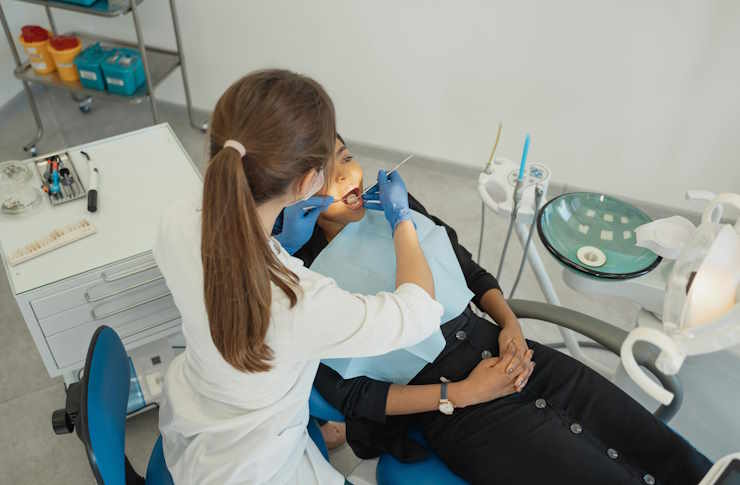Choosing Best Dentist For Seniors: What Matters Most
Dental needs can change with age, making it important to find care that’s both gentle and effective. For seniors, it’s not just about routine cleanings — it’s about providers who understand aging-related conditions, medication sensitivities, and comfort concerns. Whether it’s maintaining natural teeth or exploring prosthetic options, selecting the right dental professional can influence long-term oral health and overall well-being. A thoughtful approach helps ensure personalized care at every stage.

What Should Seniors Look For in a Dentist?
When searching for a dentist, seniors should prioritize practitioners with experience in geriatric dentistry. Look for dentists who understand age-related oral health issues and are comfortable working with older patients. Key qualities include patience, good communication skills, and a gentle approach. It’s also important to find a dentist who takes the time to explain procedures and listen to concerns. Additionally, seniors should seek out dental offices that offer accessibility features such as wheelchair ramps, wide doorways, and comfortable seating options.
How Does Dental Care Change with Age?
As we grow older, our oral health needs become more complex. Seniors may require more frequent check-ups and cleanings due to an increased risk of gum disease and tooth decay. Dental care for older adults often involves managing chronic conditions like dry mouth, which can be a side effect of medications. Dentists may need to adjust their approach, using softer brushes and specialized tools to clean sensitive gums and teeth. They should also be prepared to work with patients who have cognitive impairments or physical limitations that affect their ability to maintain oral hygiene.
What Oral Health Concerns Are More Common Among Seniors?
Seniors face a unique set of oral health challenges. Gum recession is prevalent, exposing root surfaces and increasing the risk of decay. Tooth wear and erosion are also common, potentially leading to sensitivity or the need for restorative work. Many older adults experience dry mouth, which can increase the risk of cavities and oral infections. Additionally, seniors are at higher risk for oral cancer, making regular screenings essential. Dentists specializing in senior care should be vigilant in checking for these issues and providing appropriate preventive measures and treatments.
How Can Dental Providers Address Comfort and Accessibility?
Comfort and accessibility are paramount for senior dental patients. Dentists should offer shorter appointment options to accommodate those who struggle with extended periods in the dental chair. Providing pillows or cushions can help make seating more comfortable. Some practices offer sedation dentistry for anxious patients or those undergoing complex procedures. Accessibility features like ground-floor offices, wide hallways, and grab bars in restrooms can make visits easier for those with mobility issues. Dentists should also be prepared to accommodate hearing or vision impairments by speaking clearly and providing written instructions in large print.
Why Is Senior-Focused Dentistry Important for Long-Term Wellness?
Senior-focused dentistry plays a crucial role in maintaining overall health and quality of life for older adults. Poor oral health has been linked to various systemic conditions, including heart disease, diabetes, and respiratory infections. By addressing dental issues promptly and providing tailored preventive care, dentists can help seniors avoid complications that could impact their general health. Moreover, maintaining good oral health allows seniors to eat a varied, nutritious diet, which is essential for overall well-being. Regular dental visits also provide an opportunity for early detection of oral cancers and other serious conditions.
What Are the Cost Considerations for Senior Dental Care?
When it comes to dental care for seniors, cost is often a significant concern. Many older adults are on fixed incomes and may not have comprehensive dental insurance coverage. It’s important to understand the potential expenses and available options for managing dental care costs.
| Service | Average Cost Range | Potential Medicare Coverage |
|---|---|---|
| Routine Cleaning | $75 - $200 | Not covered |
| Full Set of X-rays | $100 - $300 | May be covered if medically necessary |
| Filling | $150 - $450 | Not covered |
| Crown | $500 - $2,500 | Not covered |
| Full Dentures | $1,000 - $3,000 | Not covered |
| Dental Implant | $3,000 - $4,500 per tooth | Not covered |
Prices, rates, or cost estimates mentioned in this article are based on the latest available information but may change over time. Independent research is advised before making financial decisions.
Many dental practices offer senior discounts or payment plans to help manage costs. Some community health centers and dental schools provide reduced-cost services for seniors. Additionally, dental savings plans can offer discounts on various procedures. It’s crucial for seniors to discuss financial options with potential dental providers and explore local resources that may offer assistance for dental care expenses.
In conclusion, choosing the right dentist is critical for seniors’ oral and overall health. By seeking out practitioners experienced in geriatric dentistry, understanding age-related oral health concerns, and considering comfort and accessibility, older adults can ensure they receive the specialized care they need. While cost considerations are important, investing in quality dental care can lead to significant long-term health benefits and improved quality of life for seniors.




